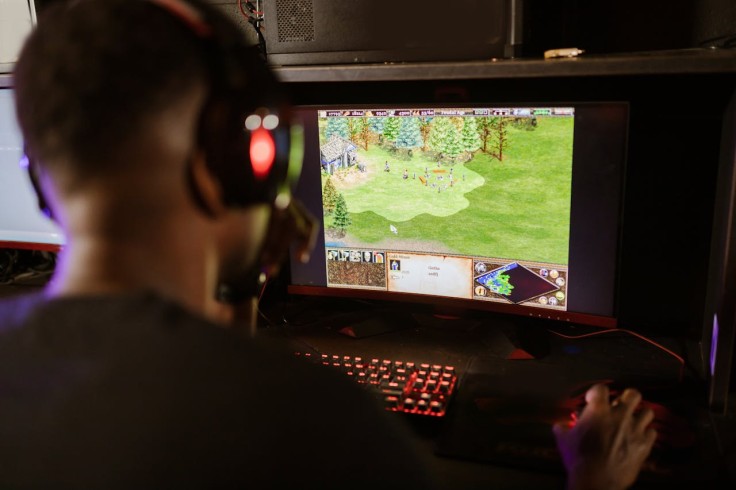
The use of electronic devices like computers, laptops, and smartphones has become increasingly common as society has become more connected in more ways than ever before. In fact, as of 2024, over five billion people are regularly online. However, with the ease and convenience of electronic use comes the serious health concerns of increased screen time.
Specifically, prolonged exposure to digital screens has been associated with computer vision syndrome, a group of complex eye and vision problems related to near work during electronic use. Also referred to as visual fatigue and digital eye strain, computer vision syndrome symptoms can range from dry eyes, irritation, and visual discomfort to extraocular pain like headaches and dizziness.
Considering gamers are among the demographic that uses electronic devices for extended periods, this article will look at how gaming can be a risk factor for computer vision syndrome and what gamers can do to manage the risk and protect their overall eye health.
How Gaming Can Contribute to Computer Vision Syndrome
Research studies suggest that risk factors for computer vision syndrome can be categorized into those of personal origin and those resulting from the device itself and the individual's environment.
So, among gamers, personal risk factors include long duration of computer use, improper distance between the eye and the screen, poor posture while gaming, and preexisting eye conditions like refractive errors. It's important to note that one of the most common toxic habits among gamers is excessive playtime. On average, most gamers log an average of 10 hours worth of play a day. Meanwhile, environmental factors include non-ergonomic workstations, poor lighting, excessive brightness and screen glare, and light imbalance between the digital screen and the surrounding environment.
Given these personal and environmental contributors to computer vision syndrome, gamers can incorporate the practices in the following section to continue enjoying video games without compromising their eye health.
What Gamers Can Do to Protect Their Eyes Better
Wear blue light glasses.
Computer vision syndrome symptoms mainly stem from exposure to blue light, the short-wavelength light emitted by digital screens, which is associated with focus problems and vision degradation. Fortunately, gamers can wear blue light glasses to reduce exposure and preserve visual comfort, especially when gaming for prolonged periods. Optical retailer LensCrafters offers blue-violet light filtering lenses for both prescription and non-prescription frames from a wide variety of eyewear brands, including Ray-Ban, Tory Burch, and Michael Kors. Available with and without prescriptions, these can be worn while gaming for better visual comfort and clarity.
Do eye exercises during screen breaks.
As excessive computer use was mentioned as a risk factor for computer vision syndrome, remember to take regular breaks when gaming, even if it's just a short break of 5–10 minutes after leveling up or completing a match. Aside from getting up to stretch or hydrate, consider doing simple eye exercises that relieve the stress and tension in the eye muscles. These include lightly massaging each eyelid for 10 seconds, warming up the palms before pressing them on the eye area, and consciously blinking to rehydrate the tear film.
Practice proper posture while gaming.
Lastly, you can prevent or manage digital eye strain by practicing the proper posture while gaming, which entails positioning the screen about two feet away with its center at eye level. To help ensure your head and back are upright, consider investing in an ergonomic gaming chair, such as the Vantum model by Herman Miller and Logitech G. Specifically designed to provide gamers with versatility and adaptability, the Vantum chair features an adapted seat pad to provide adjustable support across various modes of gameplay and prevent slouching and fatigue.
Incorporate these eye care practices into your daily gaming routine so you can play without worrying about your long-term vision and eye health.
Continue reading the posts here at iTechPost for more gaming-related tips and resources.









